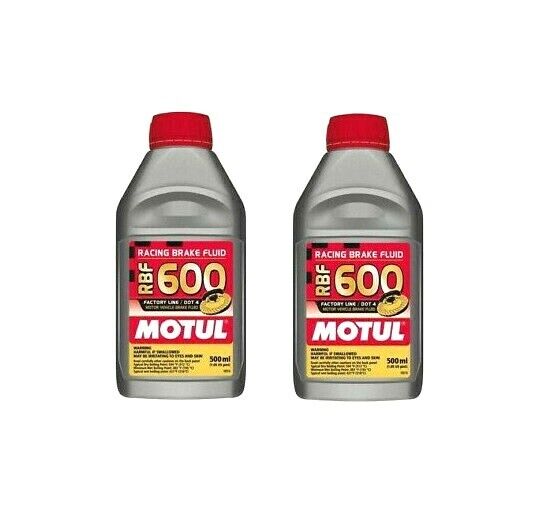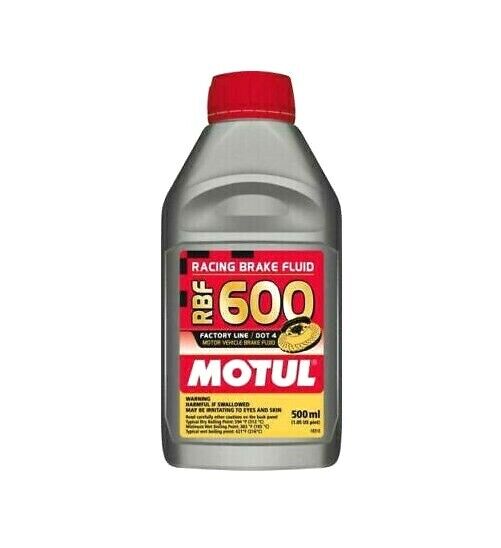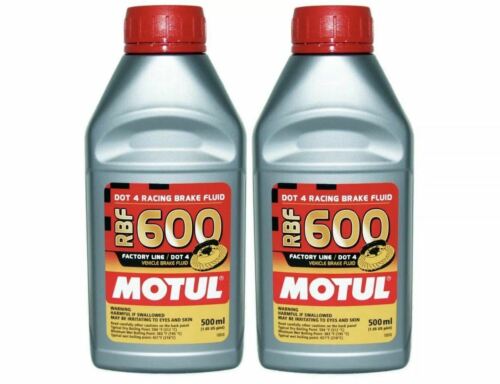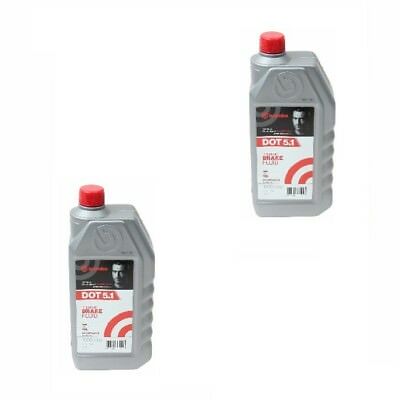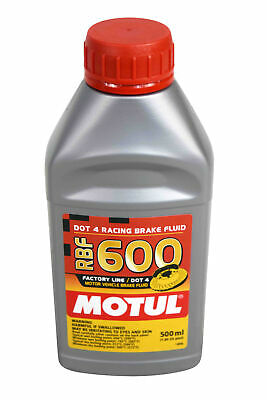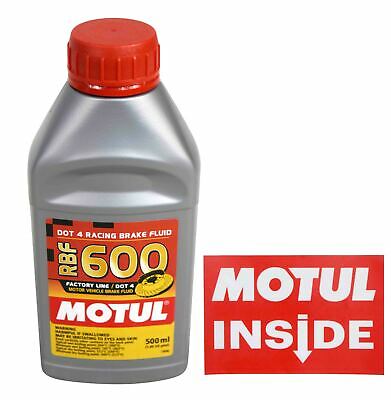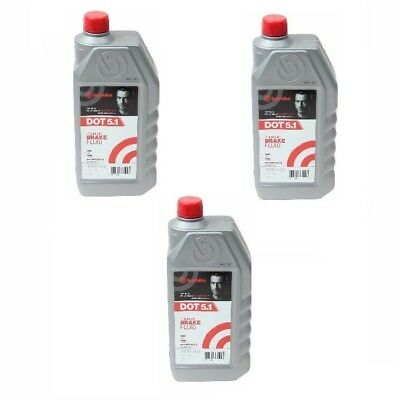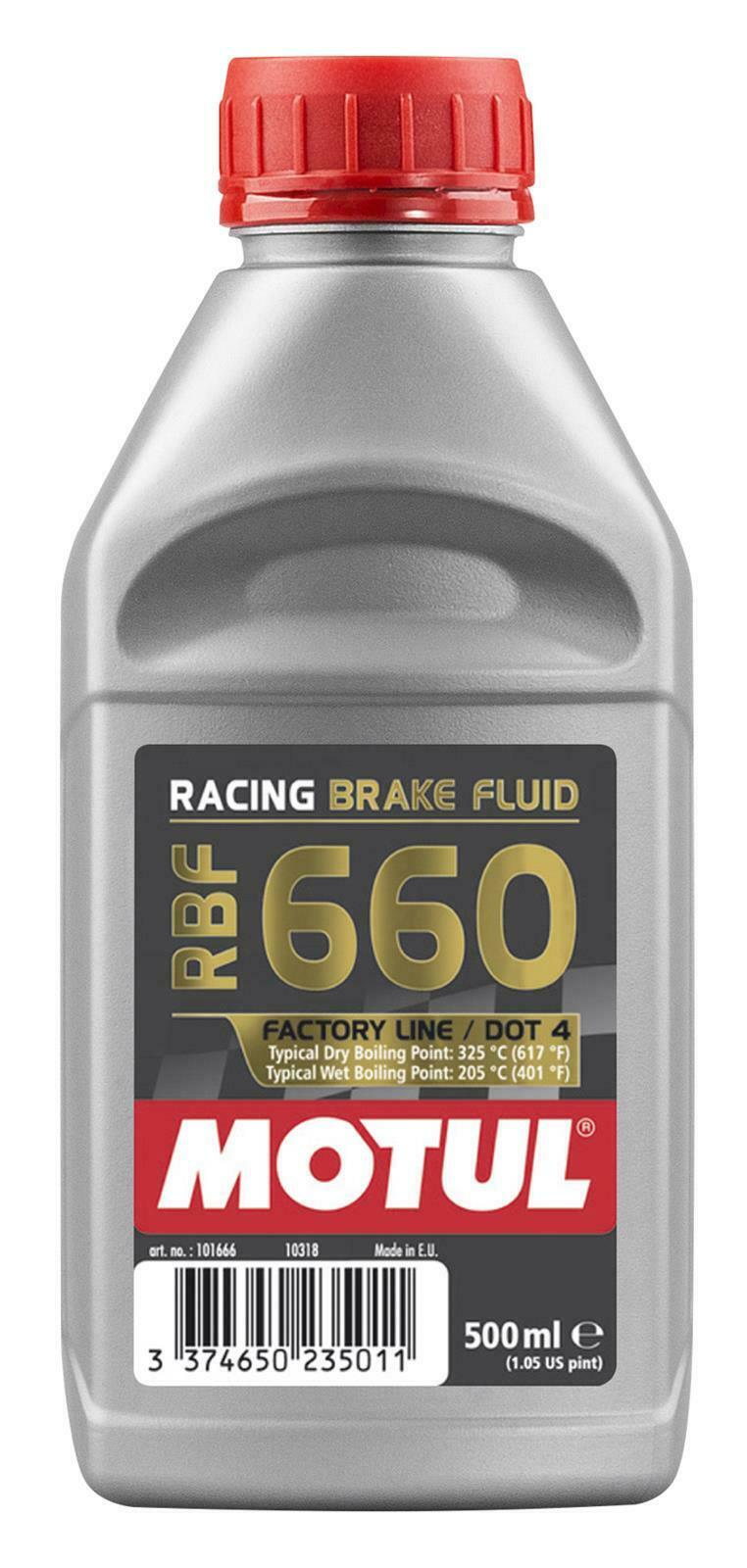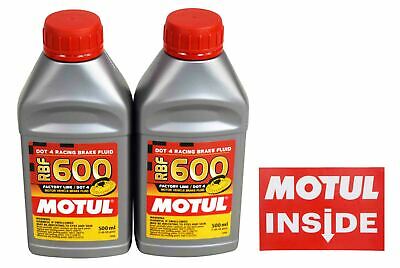-40%
Motul RBF 600 DOT 4 Racing Brake Fluid Fully Synthetic CAR & BIKE (Qty 2 x 0.5L)
$ 18.87
- Description
- Size Guide
Description
Motul RBF 600 DOT 4 Racing Brake Fluid Fully Synthetic CAR & BIKE (Qty 2 x 0.5L)Part Number:
100949 x 2 bottles
DOT 4 Very high boiling point : 312°C / 594°F
For hydraulic actuated brake & clutch systems
TYPE OF USE
All types of hydraulic actuated brake and clutch systems requiring a non-silicone synthetic fluid. Specially designed to resist to high temperature of racing actuated brake (steel or carbon) and clutch systems. Exceeds DOT 5.1 and DOT 3 standards also, except for viscosity at -40°C (-40°F).
PERFORMANCE STANDARDS :
FMVSS 116 DOT 4 / SAE J 1703 / ISO 4925
Extreme thermal resistance and stability :
The very high boiling point (312°C / 594°F), superior to conventional DOT 5.1 non silicone base / DOT 5 silicone base fluids (260°C / 500°F mini) and DOT 4 (230°C / 446°F mini) enables an effective brake even under extreme conditions.
Efficient when rainy :
The very high wet boiling point (204°C / 399°F) superior to conventional DOT 5.1 non-silicone base fluid (180°C / 356°F mini) and DOT 4 (155°C / 311°F mini) enables to keep an efficient brake system when rainy. Indeed, DOT 3, DOT 4 and DOT 5.1 brake fluids have the property to absorb humidity in the air, which reduces their boiling points and increases the risk to get to “vapor lock” phenomena. The wet boiling point is measured by humidifying the product with about 3.5 % of water.
RECOMMENDATIONS
Avoid mixing with polyglycols based brake fluid with lower performances. Do not mix with silicone (DOT 5 silicone base) or mineral base fluids (LHM). Store brake fluid in its original container, tightly closed to prevent absorption of moisture. Aggressive chemical product if contact with hands, paint or varnish. If skin contact, rinse thoroughly with water.
PROPERTIES
100% synthetic fluid, polyglycol bases. Color Amber Dry boiling point 312 °C / 594 °F Wet boiling point 204 °C / 399 °F Viscosity at -40°C (-40°F) 1750 mm²/s Viscosity at 100°C (212°F) 2.5 mm²/s
